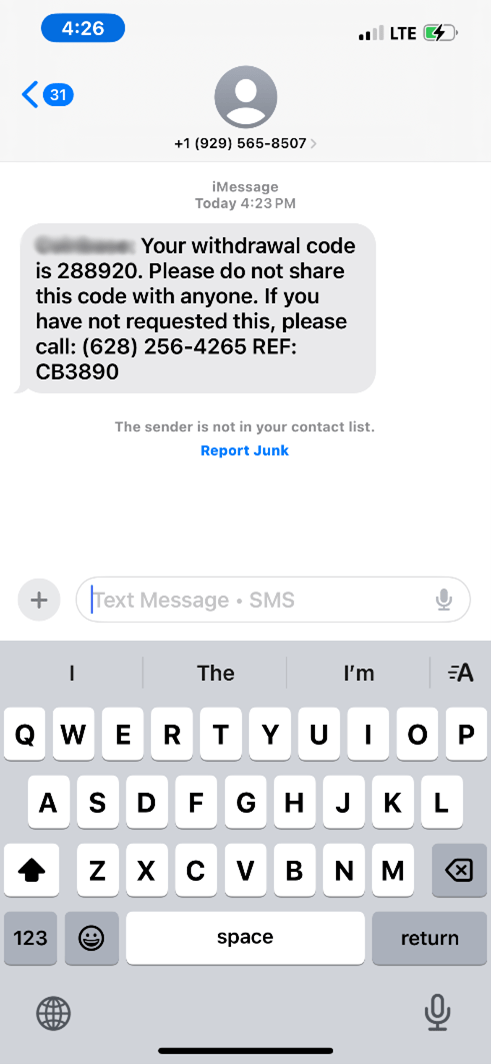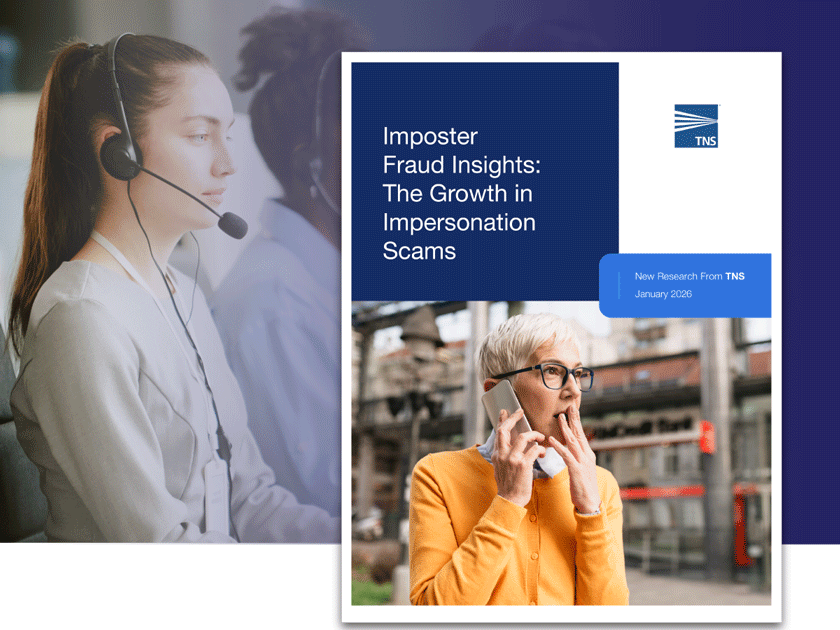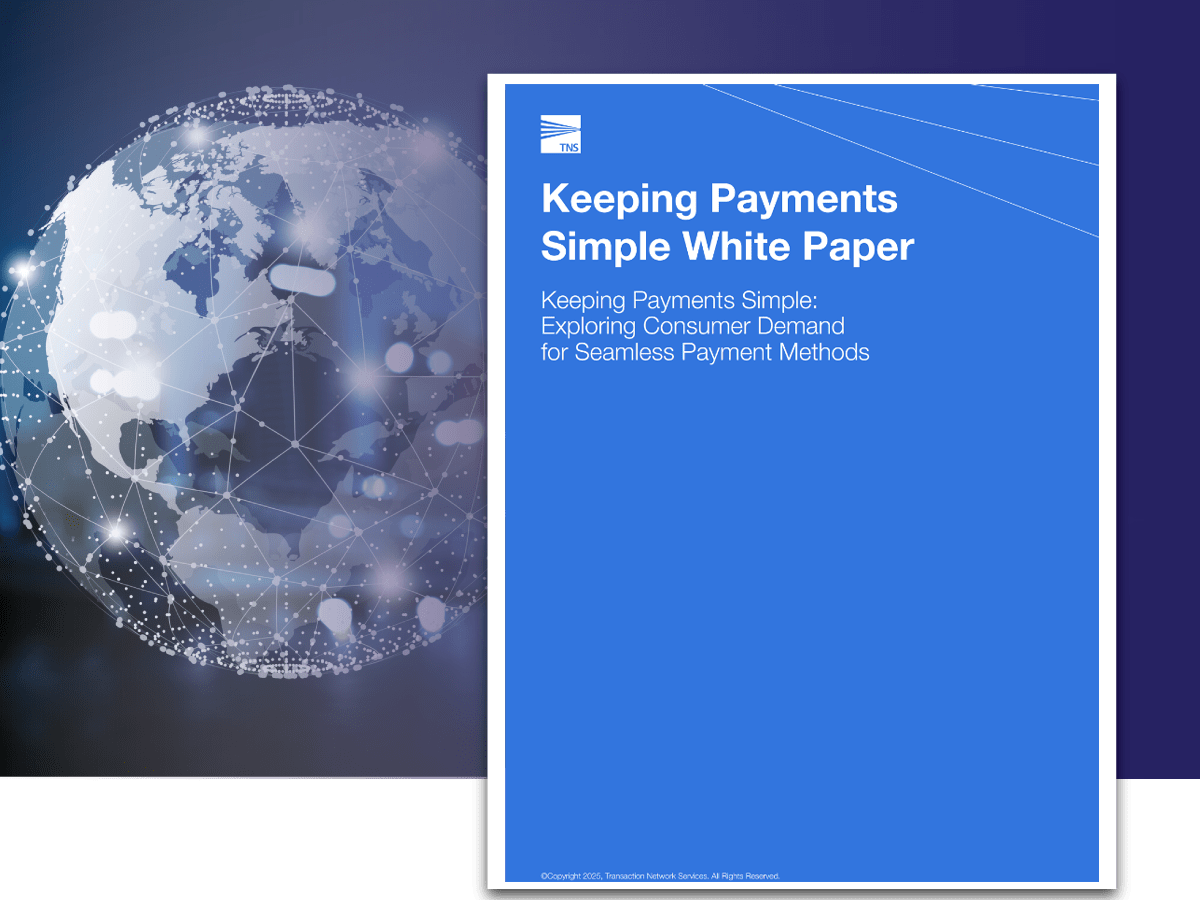Account scams are on the rise, targeting members of the public with warnings of unauthorized logins or account activity. Of course, some of these messages are legitimate and not part of fraudster-led account scams. Scams such as this play on the emotions of the victim; scammers are counting on the message recipients to spring into action to protect their accounts from scammers, unknowingly becoming a victim of the account scams until it is too late.
What are account scams?
Accounts scams are fraudulent robotexts, robocalls or emails that appear to be from a service provider, alerting you to unauthorized logins or suspicious account activity. With so many of us now using digital services or going ‘paperless’ with our communications, the reports of account scams are rising.
Some of the services that account scams reported to TNS have impersonated:
- Bank accounts
- Mobile payment apps
- Cryptocurrency exchanges
- Streaming services
- eCommerce websites
- Email accounts
Who is at risk of account scams?
In today’s digital world, almost everyone is at risk of falling victim of account scams. We rely on communications from our service providers via phone calls, SMS or email, making impersonation account scams one of the most popular with scammers today.
The best rule of thumb is this – if your email address, landline number or cellphone number is linked to any service account that you have, you are at risk of account scams.
Common account scams
From the reports that TNS’ Robocall Protection team has seen, account scams are taking many different forms. This is likely due to the myriad of ways that we can now communicate with service providers – a convenience in today’s digital world, yet a plethora of opportunity for scammers.
Common types of account scams include:
- Robocalls and robotexts (smishing)
- Phishing emails
- Fake login pages
Account scams examples
TNS’ Robocall Protection team have received an SMS message from scammers impersonating a popular cryptocurrency platform.

This messages looks like a legitimate two-factor authentication message that the platform might send to users after requesting a withdrawal – in this case, it is a fake withdrawal. However, for platform that the scammers are impersonating, this is not usual procedure – an immediate red flag that this is part of the account scams that the TNS team have been seeing.
For those users of the platform that called the number, believing this to be an unauthorized withdrawal from their account, the following would have likely happened:
- A scammer impersonating a call agent for the cryptocurrency platform warned that someone was trying to access their account and immediate action must be taken
- Scammer would then request that the target moved their current assets around to a different account or even request that they open an account with another app
Again, these are both immediate signs of account scams. Legitimate representatives will never ask a user to perform these acts.
The TNS Robocall Protection team have also received robocalls impersonating mobile payment apps in an attempt to illicit funds as part of their account scams.
Below is a transcript (with the company redacted) of a robocall related to the account scams currently doing the rounds:
“Hello Kenosha Maldonado. This is the [Redacted] Fraud hotline. We are sending this automated call because someone is trying to change the password for your [Redacted] account. If it’s not you, please press 1.”
This particular mobile payment app also offers debit and credit services, so the account scams impersonating this company can gain access to a lot more accounts – and a lot more money – should their targets believe the call.
Account Scams Red Flags
Account scams appear legitimate on the surface, however there are many red flags that give the phone calls, SMS messages and emails away as scams. Above all, it is important not to panic or let emotion override your rationality – this is what scammers are counting on happening.
Red flags of account scams include:
- Suspicious links or URLs – a classic phishing tactic, the URLs may look legitimate at first glance, however there is usually something slightly different from a legitimate link. If in doubt, do not click.
- Unusual login notifications – such as the SMS message example above, receiving messages regarding login attempts or unauthorized withdrawals are both signs of account scams. These may be legitimate but always check with the provider before clicking any links in these messages.
- Requests for personal information – any correspondence that asks for your login details, passwords or PIN numbers are not legitimate; service providers will never request your personal information.
- Urgent or threatening language – one of the universal red flags of scam, including account scams, is the use of urgent or threatening language. Legitimate businesses would never try and force you into making withdrawals, threaten with arrest or anything that demands immediate action.
How to stay safe from account scams
Any online services can be impersonated as part of the ongoing spikes in account scams that we are seeing. The tips mentioned above can be applied to any suspicious messages claiming unauthorized access to your accounts or alerting you to fake withdrawals.
If you believe that you have been a victim of account scams, you should immediately contact your bank and report the incident to the FTC.
It is always best practice to never engage with unknown numbers and report phone numbers being used by scammers to your carrier. If you believe you are a victim of a scam, you can report it to your local police, state Attorney General’s office and the FTC.
Call-blocking apps, including those powered by TNS Call Guardian®, are also a great resource for reporting and blocking unwanted robocalls. Stay vigilant, share information about scams with others and be sure to check our monthly Scam of the Month page for updates.
John Haraburda is Product Lead for TNS Call Guardian® with specific responsibilities for TNS’ Communications Market solutions.
Call Guardian is a registered trademark of Transaction Network Services, Inc.

Scam of the Month
Stay vigilant, share information about scams with others and check out our Scam of the Month page updates.





